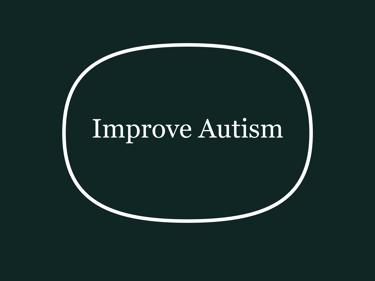Precision microbial intervention improves social behavior but not autism severity: A pilot double-blind randomized placebo-controlled trial
Authors:
Mazzone, L., Dooling, S.W., Volpe, E., Uljarević, M., Waters, J.L., Sabatini, A., Arturi, L., Abate, R., Riccioni, A., Siracusano, M. and Pereira, M.
Summary of study
The study found that a 6-month treatment with a combination of Limosilactobacillus reuteri strains ATCC PTA 6475 and DSM 17938, administered as two daily tablets (each ≥200 million CFU), led to significant improvements in social functioning—specifically social communication and adaptive social skills—in children with autism, observable after 6 months. However, it did not affect overall autism severity or other symptoms like repetitive behaviors. The probiotic intervention was safe and selectively beneficial for social behavior, but its effects were limited in scope and possibly strain-specific, with no notable changes to the gut microbiome or immune system. These findings suggest potential for precision microbial interventions in targeting specific autism symptoms, though larger trials are needed to confirm and expand on these results.
Probiotics Used and Administration
The study utilized a specific probiotic combination consisting of two strains of Limosilactobacillus reuteri (previously known as Lactobacillus reuteri):
Strains: ATCC PTA 6475 and DSM 17938.
Administration: Participants in the treatment group were given two tablets per day, with each tablet containing at least 200 million colony-forming units (CFU) of the L. reuteri combination.
Duration: The treatment was administered daily for a period of 6 months.
Symptoms Improved and Timeframe
The study assessed various autism-related symptoms, with the following outcomes:
Overall Autism Severity: The primary outcome measure was overall autism severity, evaluated using the Autism Diagnostic Observation Schedule, Second Edition (ADOS-2). No significant improvement was observed in this measure after 6 months of treatment.
Social Functioning Improvements: Secondary analyses revealed significant improvements in specific aspects of social functioning after 6 months:
Reduced Social Deficits: Measured by the Social Responsiveness Scale (SRS) total T score and the social communication subdomain, indicating a decrease in social impairment severity.
Increased Adaptive Social Functioning: Assessed by the social adaptive composite score of the Adaptive Behavior Assessment System, Second Edition (ABAS-2), showing enhanced practical social skills.
No Improvement in Other Areas: The treatment did not lead to significant changes in restricted repetitive behaviors (measured by the Repetitive Behavior Scale-Revised, RBS-R), general psychopathology (Child Behavior Checklist, CBCL), non-social adaptive functioning (ABAS-2), parental stress (Parenting Stress Index Short Form, PSI/SF), or gastrointestinal symptoms (Gastrointestinal Symptoms Rating Scale, GSRS) after 6 months.
Thus, improvements were specific to social functioning, observed at the end of the 6-month treatment period.
https://pubmed.ncbi.nlm.nih.gov/38113884/
doi: 10.1016/j.chom.2023.11.021


